Discover how the Port of Santos influences both the Brazilian and global economies, and the impact of innovations being implemented in the logistics of the cotton supply chain.
When discussing Brazilian exports, it’s impossible not to think of the Port of Santos, the largest gateway for goods in Latin America.
Located on the coast of São Paulo, this titan of national logistics serves as the starting point for a wide variety of products that cross oceans and reach global markets, including cotton. But what is the secret behind the success of this port, and how does it connect to the growing cotton export chain?
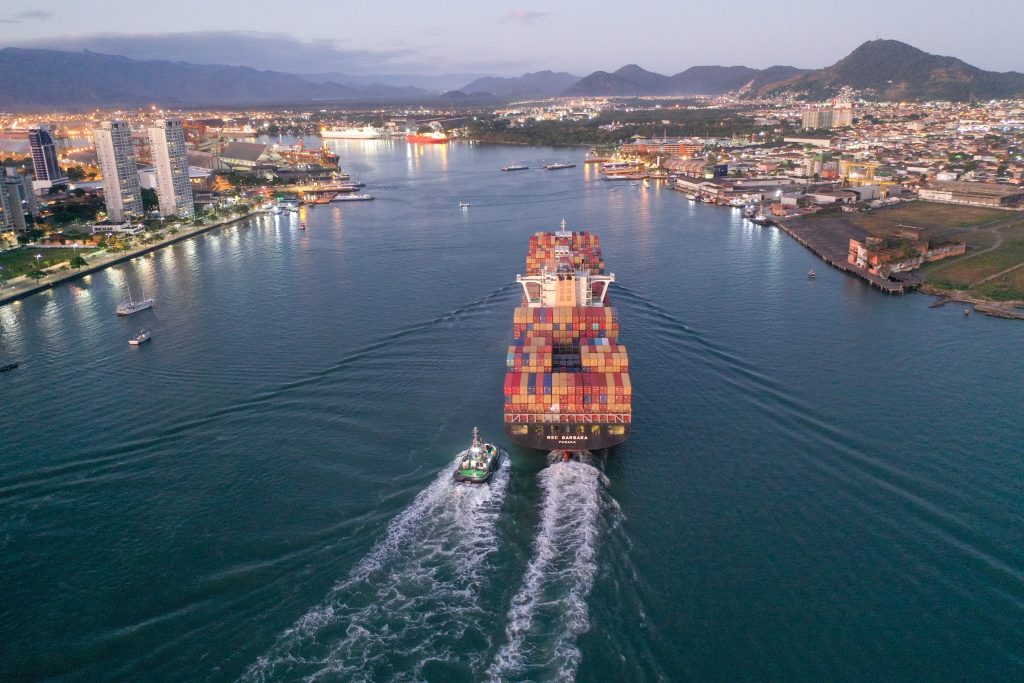
One Port, a Thousand Stories
Inaugurated in 1892, the Port of Santos not only holds over a century of history but also boasts impressive figures. In 2023, it handled over 160 million tons of cargo, with the highest volumes coming from commodities like soybeans, coffee, sugar, and, of course, cotton.
With constantly evolving infrastructure, the port is multimodal and features more than 13 kilometers of quays and 55 terminals, accommodating various types of vessels. It directly and indirectly employs thousands of people and accounts for nearly 30% of Brazil’s trade balance. Additionally, its strategic location—connected to major highways and railways—ensures agility and efficiency in transportation.
The port complex spans beyond Santos, encompassing the cities of Guarujá and Cubatão, making it the largest port in Latin America.
Here are some key facts about the Port of Santos:
- Record number of ships: On a single day, more than 100 vessels have docked simultaneously.
- Global reach: The port connects Brazil to over 200 ports in 80 countries.
- Impressive exports: Nearly 70% of Brazil’s coffee exports pass through here.
- Cotton in focus: In recent years, the port has become an essential link in the export of Brazilian cotton, particularly to Asian countries. In the 2023/24 commercial season, the Port of Santos became the world leader in cotton handling!
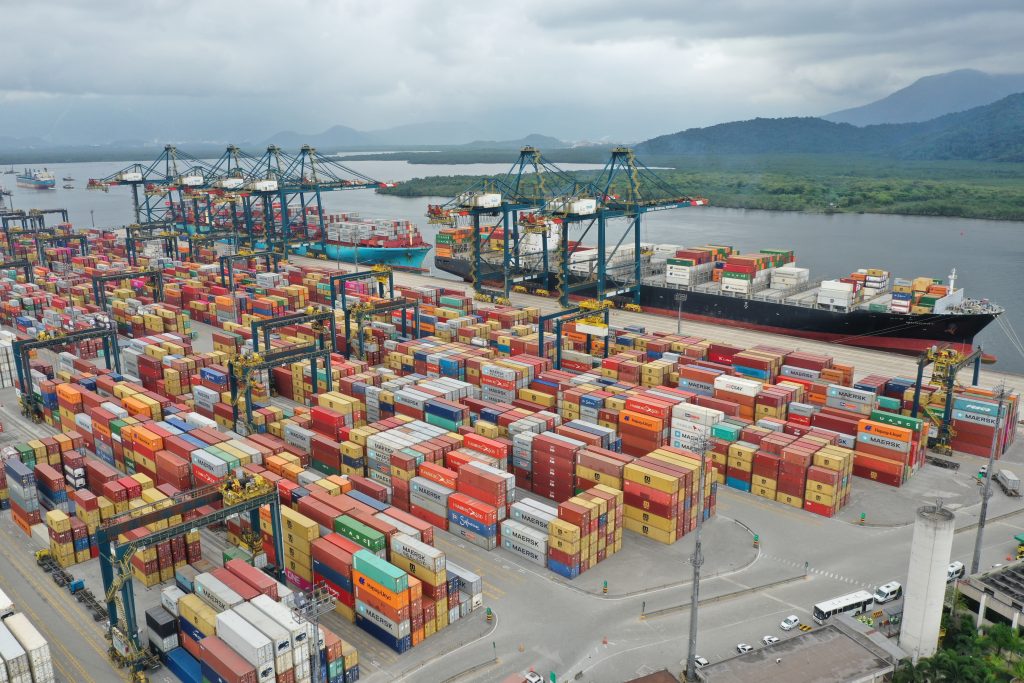
The Role of ABR-Log in the Logistics Chain
When it comes to cotton exports, operational quality and efficiency are key. This is where ABR-Log comes into play—a socio-environmental certification implemented by Abrapa (the Brazilian Cotton Growers Association) tailored for the port logistics sector.
Created to complement good practices in agricultural production, the certification promotes best practices in the stuffing and handling of cotton bales at port terminals, while adhering to environmental and social standards.
Since its implementation in 2023, ABR-Log has driven several advancements, including:
- Safer, more qualified working conditions for logistics workers.
- Improved shipments, ensuring the fiber reaches clients securely, standardized, and well-controlled.
- Digitalization of processes, fostering greater traceability and efficiency.
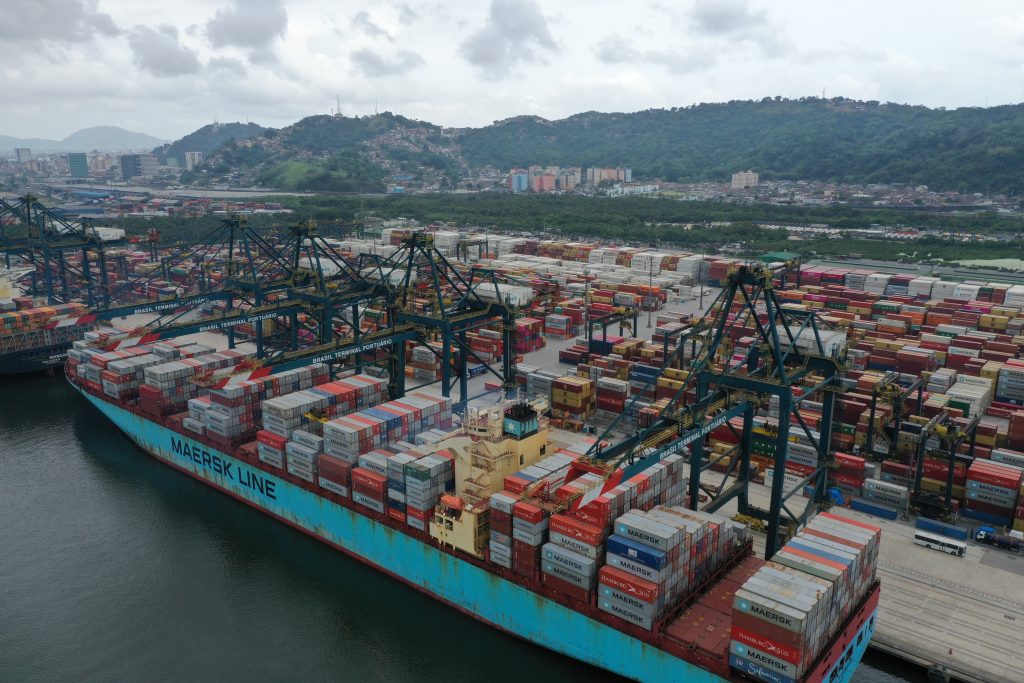
Cotton Day Santos: Celebrating Brazilian Cotton
In early November, the city of Santos hosted Cotton Day Santos, an inaugural event that brought together the cotton logistics chain to discuss the sector’s challenges and opportunities.
Organized by Abrapa and its partners, the gathering underscored how the Port of Santos serves as a vital link for Brazilian cotton to reach new markets with excellence.
The event featured lectures, panels, and technical visits, showcasing the progress achieved through the ABR-Log certification. It was a platform for exchanging ideas and strengthening partnerships, reaffirming Brazil’s commitment to responsible production and exportation.
“We need to ensure that our cotton reaches the consumer, on the other side of the world, on time and in the right conditions. Even with the introduction of alternative ports, such as Salvador and Paranaguá, Santos will continue to be the main player and needs to be looked at carefully.” – Abrapa’s CEO, Marcio Portocarrero
A Port for the Future
The Port of Santos is more than just a physical space—it’s a symbol of Brazil’s connection to the world. Whether it’s moving goods, promoting sustainability, or hosting strategic events like Cotton Day, this logistics giant remains a key player on the global stage.
The event co-organizer, Associação Comercial de Santos (Santos Commercial Association), also seized the opportunity to delve deeper into the logistical challenges of the cotton sector, which are similar to those faced by other containerized goods.
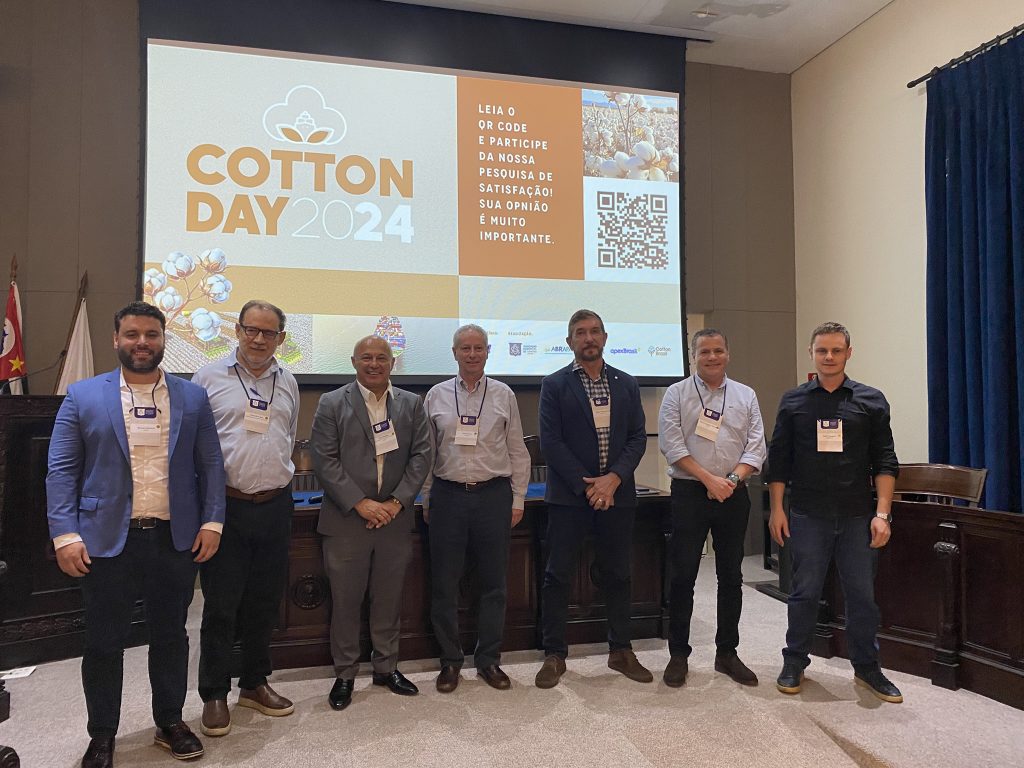
“This allows the ACS to foster meaningful dialogue with the port authority, customs, and local government. We aim to maintain the Port of Santos’ leadership, remembering that it once accounted for 99% of Brazil’s total cotton exports, a figure that now stands at 95%,” said Carlos Alberto Santana Jr., ACS Vice President.
According to the Port of Santos Operations Director, Beto Mendes, in 2023 the port grew by around 7% and handled 173 million tons.
“If we divide this total by the 365 days of the year, considering that each truck carries an average of 30 tons, Santos handled 15,827 trucks daily. Since one-third of this is transported by train, the port saw 10,000 trucks per day last year. Annually, approximately 5,500 ships dock here,” Mendes explained.
As a result of the event, a working group was established in collaboration with the port authority to promote joint solutions and improvements for containerized logistics at the Port of Santos. The initiative will bring together representatives from all agricultural sectors that rely on container exports.
Focus on Safe Delivery
Extra efforts and strategic adjustments are measures the Brazilian Ministry of Agriculture and Livestock (Mapa) has adopted during the cotton harvest to ensure exported cargoes are demonstrably free from pests and diseases.
According to Mapa’s sector chief, Roberto Lorena de Barros Santos, the ministry adapts to Brazil’s realities to ensure both safety and supply for the global market.
“We can’t tell exporters they need to ship less in a given year because the government can’t keep up. It’s our role to adapt to demand. We conduct task forces during the harvest when demand exceeds our capacity,” he explained.
In the phytosanitary field, Brazil’s certification enjoys recognition and respect in the international market, even being used as collateral in financial operations, according to Mapa representatives.
The Cotton Journey
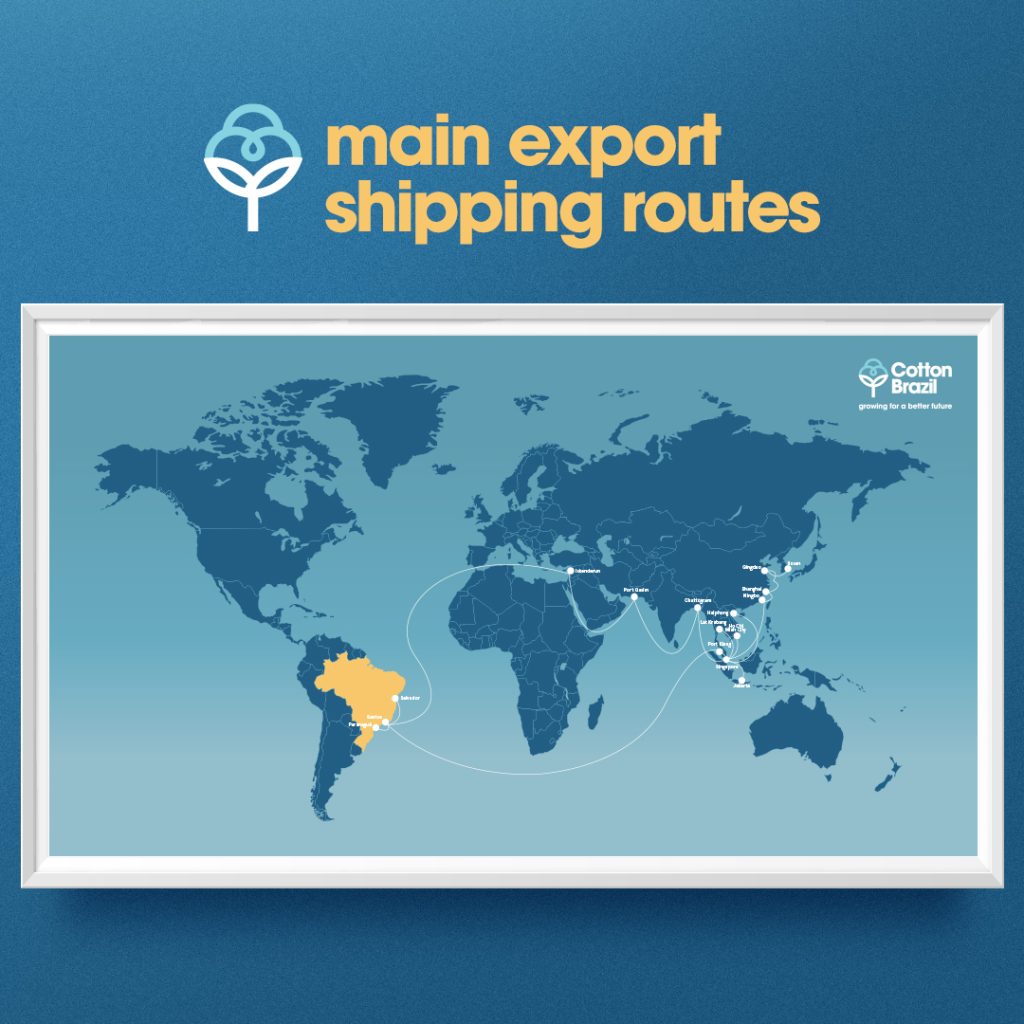
If you weren’t familiar with all these details, now you know: every time a shipment leaves the Port of Santos, there’s a story of innovation and commitment behind it.
Want to buy Brazilian cotton? Find out how in our Buyer’s Guide.
